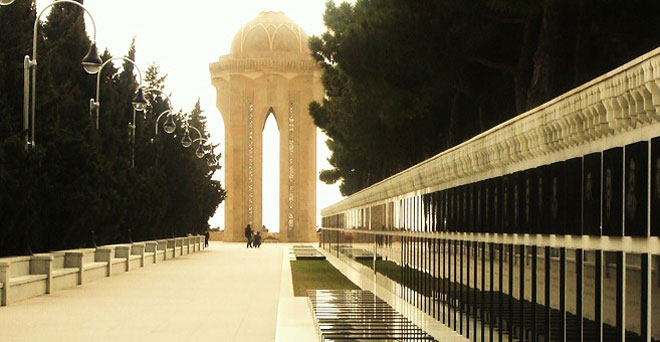28th ANNIVERSARY of BLACK JANUARY
PRESS-RELEASE
28th ANNIVERSARY of BLACK JANUARY
On January 20th, the people of Azerbaijan commemorate a tragedy, which became a turning point in the nation's struggle for independence from the former Soviet Union and one of the most tragic events in its recent history.
On the night of January 19-20th, 1990, the Soviet Army stormed Baku, the capital of Azerbaijan, which was then a part of the former USSR. As a result, 147 civilians were killed, around 800 wounded, and still hundreds more were rounded up and detained. Soviet tanks were running over cars carrying senior citizens, and were shooting at random civilians in the street, people looking out their apartment windows and ambulances carrying victims. Twenty-eight years ago today, on General Secretary of the Soviet Communist Party Mikhail Gorbachev’s order, Soviet troops invaded the Azerbaijani capital of Baku, killing hundreds and enflaming ethnic hatreds, in an action the Soviet president five years after the events acknowledged was “the greatest mistake” of his political career. The purpose of the invasion was to prevent the collapse of the Communist regime and to crush Azerbaijan’s bid for independence.
Human Rights Watch published a report titled “Black January in Azerbaijan,” in which it was stated that “among the most heinous violations of human rights during the Baku incursion were the numerous attacks on medical personnel, ambulances and even hospitals.” The report concluded: “Indeed, the violence used by the Soviet Army on the night of January 19-20 was so out of proportion to the resistance offered by Azerbaijanis as to constitute an exercise in collective punishment. The punishment inflicted on Baku by Soviet soldiers may have been intended as a warning to nationalists, not only in Azerbaijan, but in the other Republics of the Soviet Union.”
The Soviet attack against innocent civilians in Azerbaijan followed massacres in other Soviet republics, including Kazakhstan in 1986, Georgia in 1989 and was tragically replicated one year later in Lithuania in 1991, although the brutality of the "Black January" tragedy was the biggest exercise in collective punishment by reactionary forces of the Communist Party.
The terrible event remembered by this commemoration, though an atrocity, also gave birth to a hope that eventually led to freedom and independence in the following year.
Now 28 years later, and the significance of the Black January commemoration shows no sign of declining in importance. The people of Azerbaijan visit Martyrs’ Alley in the Azerbaijani capital of Baku on January 20th to pay tribute to their fellow citizens who paid the highest price for the country’s independence.














